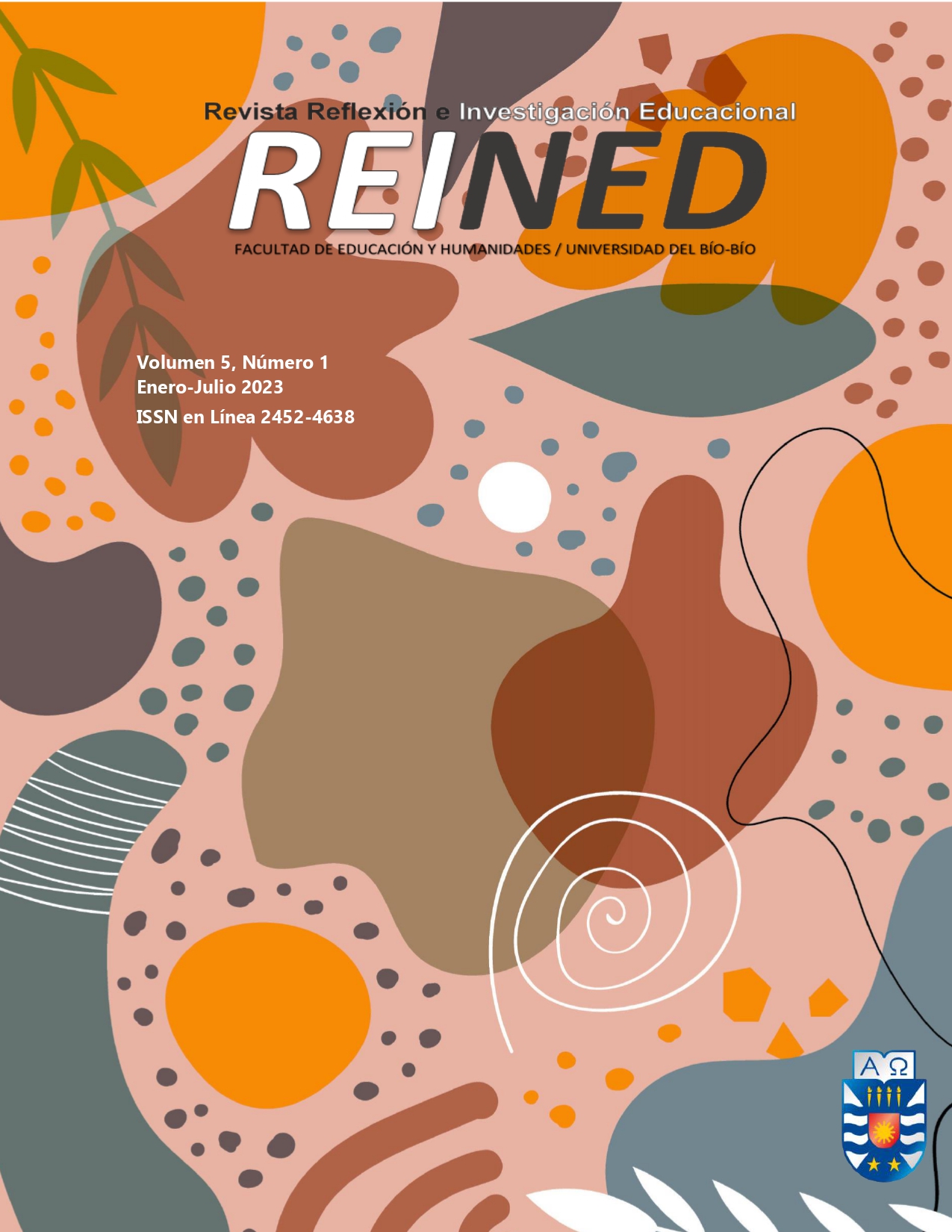Co-enseñanza e inclusión de estudiantes con discapacidad en las clases de Educación Física: la perspectiva de los docentes
Contenido principal del artículo
Resumen
La inclusión en el contexto de la Educación Física Escolar (EFE) necesita garantizar la participación de los estudiantes con discapacidad (ECD). Así, una estrategia es la co-enseñanza, que es una alianza entre un docente generalista y un especialista, para planificar, instruir y evaluar la enseñanza de un grupo heterogéneo de estudiantes. Objetivo: Evaluar una intervención basada en la co-enseñanza como servicio de apoyo para promover la inclusión de ECD en el contexto de la EFE, desde la perspectiva de los docentes de esta disciplina. El estudio se caracteriza por un enfoque colaborativo. Ocurrió en dos escuelas municipales en un pequeño pueblo en Brasil. Los participantes fueron: dos docentes de EF (siglas P1 y P2). Los instrumentos para la recolección de datos fueron: guión de entrevista inicial y final con profesores de EF del tipo semiestructurado. El tratamiento de los datos se basó en el análisis temático. Fueron analizados las entrevistas inicial y final de P1 y P2, siendo enumeradas las siguientes categorías: 1) Proceso de inclusión en las clases de EF; 2) Relaciones interpersonales, subdividiéndose en: a) docente y ECD; y b) ECD y la clase; y 3) Entender la colaboración y la co-enseñanza. Se logró el objetivo de la investigación, ya que permitieron evaluar la intervención basada en la co-enseñanza como servicio de apoyo para promover la inclusión efectiva de ECD en las clases de EF desde la perspectiva de los docentes; además de ampliar conocimientos sobre la cultura colaborativa de los participantes, así como sobre la co-enseñanza.
Detalles del artículo
Citas
Argüelles, M. E., Hughes, M. T., & Schumm, J. S. (2000). Co-Teaching: A Different Approach to Inclusion. Principal Reston, Flórida, 79(4), 50-51.
Block, M., & Vogler, W. (1994). Inclusion in regular physical education: The research base. Journal of Physical Education, Recreation and Dance, 65(1), p. 40-44. DOI: https://doi.org/10.1080/07303084.1994.10606830
BRASIL. Ministério da Educação. (2017). Instituto Nacional de Estudos e Pesquisas Educacionais Anísio Teixeira. Censo Escolar 2017: notas estatísticas - Resumo técnico. Brasília.
Desgagné, S. (2007). O conceito de pesquisa colaborativa: a ideia de uma aproximação entre pesquisadores universitários e professores práticos. Revista educação em Questão, Natal, 29(15), 7-35.
Fatting, G. M. L., & Taylor, M. T. (2008). Co-teaching in the Differentiated Classroom: Successful Collaboration, Lesson Design, and Classroom Management. - 1. ed. - San Francisco, CA: Jossey-Bass, 2008.
Ferreira, R. A. (2016). Trabalho colaborativo na educação física escolar: estratégias para a formação de professores e inclusão. 2016. 181f. Tese (Doutorado em Educação) – Programa de Pós-Graduação em Educação, Universidade Estadual Paulista – UNESP, Presidente Prudente.
Flores, K. V. (2012). Inclusive general education teacher’s perspectives on inclusion: a qualitative case study. 2012. 128f. Thesis (Master os Arts in Education – Special Education) – Department os Special Education, Rehabilitation, School Psychology, and Deaf Studies California State University, Sacramento.
Frade, C. M. L. S. (2011). Coensino: clima de partilha. 2011. 155f. Dissertação (Mestrado Educação Especial). Faculdade de Ciências Sociais. Universidade Católica Portuguesa – UCP, Braga.
Franco, M. (2006). Espectros da mídia: políticas afirmativas ou políticas de piedade? Tese (Doutorado em Tecnologias, Comunicação e Estética). Escola de Comunicação, Universidade Federal do Rio de Janeiro, Rio de Janeiro.
Friend, M. (2008). Co-Teaching: A Simple Solution That Isn`t Simple After All. Journal of Curriculum and Instruction (JoCI), 2(2). doi: 10.3776/joci.2008.v2n2p9-19 DOI: https://doi.org/10.3776/joci.2008.v2n2p9-19
Friend, M. (2017). Welcome to Co-Teaching 2.0. Rev. Teaching Exceptional Children, 49(4), 284-293. DOI: https://doi.org/10.1177/0040059916685065
Gately, S. E., & Gately, F. J. (2001). Understanding coteaching components. Revista Teaching Exceptional Children, 33(4), 40-47. DOI: https://doi.org/10.1177/004005990103300406
Glat, R., & Pletsch, M. D. (2010). O papel da Universidade no contexto da política de Educação Inclusiva: reflexões sobre a formação de recursos humanos e a produção de conhecimento. Revista Educación Especial, Santa Maria, 23(38), 345-356. DOI: https://doi.org/10.5902/1984686X2095
Göransson, K., & Nilholm, C. (2014). Conceptual diversities and empirical shortcomings: a critical analysis of research on inclusive education. European Journal of Special Needs Education, 29(3), 265-280. DOI: https://doi.org/10.1080/08856257.2014.933545
Kison, S. (2012). Motivating factors for cooperative team teaching in inclusive classrooms. 55f. Tese (doutorado em Educação), Faculty of Humboldt State University, Aracata, California.
Mendes, E. G. (2006). A radicalização do debate sobre inclusão escolar no Brasil. Revista Brasileira de Educação, Brasil, 11(33), 387-559. DOI: https://doi.org/10.1590/S1413-24782006000300002
Mendes, E. G., Vilaronga, C. A. R., & Zerbato, A. P. (2014). Ensino colaborativo como apoio à inclusão escolar: unindo esforços entre educação comum e especial. São Carlos: EdUFSCar.
Milan, J. F.; Salles, W. N., & Rodrigues, L. B. S. (2017). Educação física adaptada como perspectiva de inclusão: percepção de alunos sem deficiência na educação física escolar. Conexões: Educação Física, Esporte e Sociedade, Campinas, 15(4), 432-451. DOI: https://doi.org/10.20396/conex.v15i4.8649675
Oliveira, P. S., Nunes, J. P. S., & Munster, M. A. (2017). Educação Física Escolar e Inclusão: uma revisão sistemática da produção discente na Pós-Graduação brasileira. Práxis Educativa, Ponta Grossa, 12(2), 570-590. DOI: https://doi.org/10.5212/PraxEduc.v.12i2.0016
Pedrinelli, V. J. (1994). Educação Física Adaptada: Conceituação e Terminologia. Educação Física e Desporto para Pessoas Portadoras de Deficiência. Brasília: MEC-SEDES, SESI-DN, p. 7-10.
Rabelo, L. C. C. (2012). Ensino colaborativo como estratégia de formação continuada de professores para favorecer a inclusão escolar. [Dissertação de Mestrado, Universidade Federal de São Carlos]. Repositório Institucional UFSCar. https://repositorio.ufscar.br/bitstream/handle/ufscar/3103/4352.pdf?sequence=1&isAllowed=y
Soares, S. R., & Cunha, M. I. (2010). Formação do professor: à docência universitária em busca de legitimidade. Salvador: EDUFBA. 134 p. SciELO Books. DOI: https://doi.org/10.7476/9788523211981
Silva, S, B., & Souza, R. V. (2005). Inclusão escolar e a pessoa com deficiência nas aulas de educação física das redes municipais e estadual de Uberlândia/MG. Revista Especial de Educação Física, Uberlândia, – Edição Digital, 2, 77-88.

